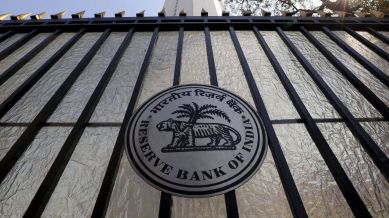‘Fiscal and monetary steps to accelerate private investment and growth’: RBI bulletin
In order to support economic growth, the government and the RBI has announced a slew of measures , including GST rationalisation, relief in income tax and a 100 basis points (bps) reduction in the repo rate.

The fiscal and monetary steps announced in the current year will lead to a virtuous cycle of private investment and growth, the Reserve Bank of India (RBI) said in an article on Monday.
In order to support economic growth, the government and the RBI has announced a slew of measures , including GST rationalisation, relief in income tax and a 100 basis points (bps) reduction in the repo rate.
“The fiscal, monetary, and regulatory measures undertaken so far this year should pave the way for a virtuous cycle of higher private investment, productivity, and growth, leading to long-term economic resilience,” the RBI’s State of Economy article published in the November bulletin said.
The article has been prepared by the central bank’s officials. The RBI said that the views published in the article are of the authors and not of the institution.
It further said that the Indian economy has shown signs of a further pick up in momentum, despite lingering external sector headwinds. The available high-frequency indicators for October suggest a robust expansion in both manufacturing and services activities, supported by festive season demand and the ongoing positive impact of the Goods and Services Tax (GST) reforms.
During October, rural demand steered overall demand, supported by favourable monsoon conditions, strong agricultural activity, GST rate reductions, and increased festive season spending. Rural demand for two-wheelers and automobiles registered a sharp pick up, as sales recorded the highest growth rate for both series. Urban demand also gained momentum, with passenger vehicle sales recording their highest growth in the past nine months, the article said.
“While exports contracted after remaining in expansion for three months, reflecting the adverse impact from global headwinds, imports surged on account of higher gold and silver imports, catering to the festive demand,” the article said.
Last month, inflation moderated to a historic low and remained well below the target rate. Headline Consumer Price Index (CPI)-based inflation, moderated to 0.3 per cent in October 2025 from 1.4 per cent in September, driven by the deepening of deflation in food prices and impact of the GST rate cut on goods and services prices, amid large favourable base effects.
“Improved macroeconomic frameworks and outcomes have not only enhanced the ability of financial institutions to support the macro economy but also allowed the Reserve Bank to better calibrate regulatory measures, to improve the efficiency of financial intermediation and augment the flow of credit to the broader economy,” the article said.